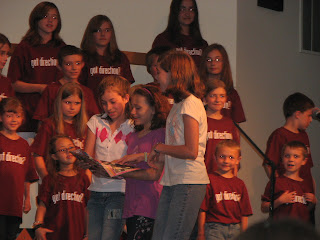The first story I read was, “An Occurrence at Owl Creek Bridge, by Bierce. This was a fascinating story, and kept me on the edge of my seat. When he falls from the bridge, and starts to head down the stream, I thought to myself, this was just what he was thinking of. When he was standing there and thought, “I might throw off the noose and spring into the stream. By diving I could evade the bullets and, swimming vigorously, reach the bank, take to the woods and get away home (361).” As he makes his way down the stream, fighting for his life, Bierce does a wonderful job in describing his surroundings. You can actually feel the confusion and desperation going through Peyton’s mind as he thrashes around in the creek. You can feel his primal urge to survive kicked in as “a sharp pain in his wrist apprised him that he was trying free his hands (363).” As he continues to evade the soldiers and escape their bullets, you begin to cheer for his survival. Once he reaches shore and begins his journey through the forest, I started to have my doubts. It wasn’t until “he looked up through this rift in the wood, shone great garden stars looking unfamiliar and grouped in strange constellations [,]” that I started to question if he had really escaped the noose(366). When he reached his home and his wife was just standing on the porch, I knew for sure he had not really made it out. It seems to me that if he was so badly beat up from the escape, that she would show more concern and run out to him. The ending was not a surprise, but it was a good story anyway.
The second story was “The Outcasts of Poker Flat,” by Harte. I did not like this story as much as the first one. I think it is because it was so hard for me to follow the reading, it was distracting. I prefer to read straight forward text, which is easy to follow. With that said, I think Harte did a great job showing how this group of outcasts, in the end, turned out to be very noble people. They were sent out of their town because they were thought to be “objectionable characters (2).” Yet, when they find themselves in a position of life and death, they show their true nature. When Mother Shipton tells Oakhurst to take her rations and “[g]ive 'em to the child,” it really showed what a caring person she was. That just because she had an occupation that the town didn’t agree with, it did not make her a bad person. Throughout the whole story I am reminded how in real life, those who are easily looked down upon because of their economic status, are often the most caring people you will meet. I did like the ending, when the towns people find Oakhurst. The last line, “beneath the snow lay he who was at once the strongest and yet the weakest of the outcasts of Poker Flat(7)[,] is heart breaking. Here was a man who tried everything he could to keep them all alive, and in the end could not face the prospect of watching them die, or himself freezing to death, so he took his own life. By doing this, making him weaker than the others, who never gave up.
Works Cited
Bierce, Ambrose. "An Occurance at Owl Creek Bridge." Reesman, Jeanne Campbell and Arnold Krupat. The Norton Anthology of American Literature. 7th. New York: W.W. Norton & Company, Inc., 2007. 360-365.
Harte, Francis Bret. "The Outcasts of Poker Flat." Harvard Classics Shelf of Fiction. Vols. X, Part 4. New York: P.F. Collier & Son, 1917. 1-7, bartleby.com, 2000, www.bartleby.com/310/4/02132011.




























